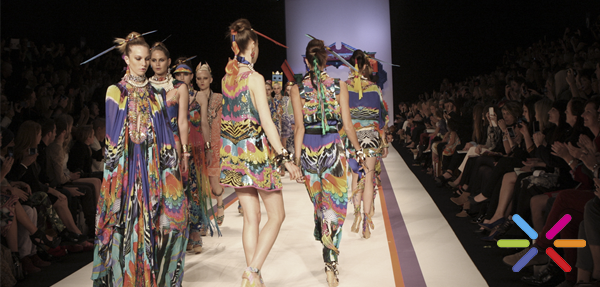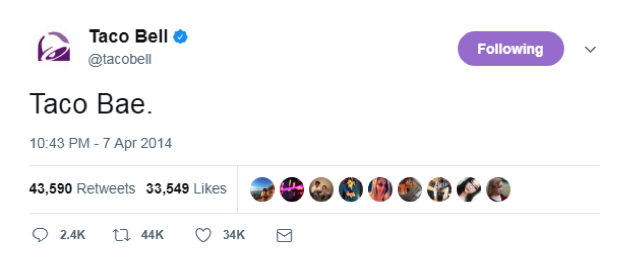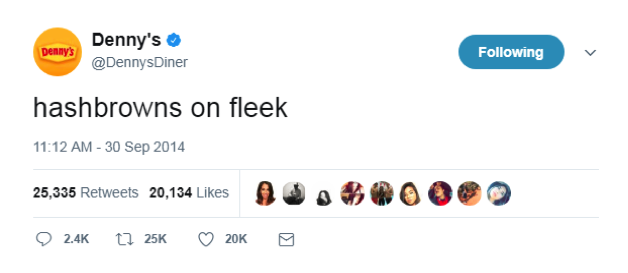
Stealing the Show: Cultural Appropriation vs. Appreciation
By Gabi Reynolds, Strategic Planning Intern
These days you can’t get very far into the news without reading about one person accusing another of cultural appropriation. Are we as a society policing too much? Is our culture of political correctness out of control? Do we just like to create controversy, or do we really have a legitimate problem stealing from one another?
The Oxford English Dictionary defines cultural appropriation as “the unacknowledged or inappropriate adoption of the customs, practices, and ideas of one people or society by members of another and typically more dominant people or society.” While it sounds easy enough to identify, the problem with something this broad, is that it prompts more and more people to call out cultural appropriation every day.
Typically, cultural appropriation is most harmful towards smaller groups and minorities. It can be subjective and happen on a case-by-case basis. Anything a group finds special or sacred like food, fashion, traditions, or language can be appropriated.
A common issue is that dominant cultures view minority cultures as “exotic” and something that can be “tried on,” when in reality their customs are the norm for them. Their customs get adopted, lifted and copied out of their native context. There is no credit given to the original culture and it is depicted in a disrespectful manner. What constitutes disrespectful? The custom or fashion item is sexualized, people are reduced to caricatures or an accurate, diverse representation isn’t included in an advertisement.
Take for example Tory Burch’s “Juju On That Beach” spot from earlier this year. Set to the rap song “Juju On That Beat,” but featuring an all white cast of models, it faced intense backlash for appropriating Black culture by not including any Black women. The ad was eventually pulled.
One’s race, ethnicity or experience should not be tried on like a costume. Certain examples in 2017 stand out as obvious no-nos. Blackface? No. Culturally offensive Halloween costumes? No. Native Americans as sports mascots? No. Lately, more groups are claiming a fierce ownership of certain customs. One group can only sell a certain food, produce a certain kind of artwork or wear a specific fashion. Perhaps this type of thinking has occurred because we’ve been really disrespectful to each other as a society. With new examples of racism occurring almost daily, people are understandably more protective of their culture. We may not take the time to understand and embrace each other, while at the same time being eager to wear each other’s clothes, listen to each other’s music, eat each other’s food and speak each other’s languages.
Language and Advertising
Nowadays, a lot of popular vernacular used among Millennials and Generation Z originates in LGBT, Latino and Black communities. A quick look at Black twitter, a community on Twitter that deals with issues relevant to the Black community, or even TV shows like RuPaul’s Drag Race confirms this. The slang is eventually popularized or appropriated by mainstream culture, however you want to see it, and shortly thereafter you have big brands using it. For example:


“On Fleek” is credited to Kayla Newman, a Georgia teenager who used the phrase on Vine in 2014. She is usually not properly credited, nor has she been compensated by any brands that used or are uing the phrase.
While this kind of interaction can lead to big impressions and engagement with younger age groups, not everyone is happy about these cultural adoptions. Sometimes the originators take to the internet to voice their concerns. They see these brands’ attempts as inauthentic, trying too hard and appropriating what’s theirs. Even beyond language and “slang,” trends in music and fashion make their way into mainstream pop culture and often times have roots with minority groups.
Let’s Show Some Appreciation
Just like people, cultures are fluid. With increasing globalization–as we become more multicultural as a society–cultural exchange is inevitable. So what can be done to appreciate instead of appropriate in an advertisement?
Do in-depth research on a culture
Hire and consult experts on the culture
Be respectful and acknowledge the origins of a slang or custom
Go as far as giving the culture credit
Cast authentic and accurate representations of racial and ethnic groups
Determine if your social media is coming from an authentic voice
Plan carefully before you invest thousands of dollars on a spot. You don’t want to wind up the center of a cultural appropriation controversy and have to pull your ad. Bad publicity and negative reactions could be far worse than no ad at all.




